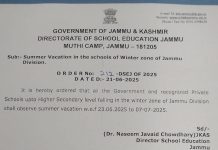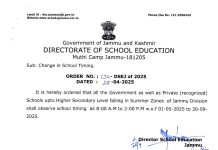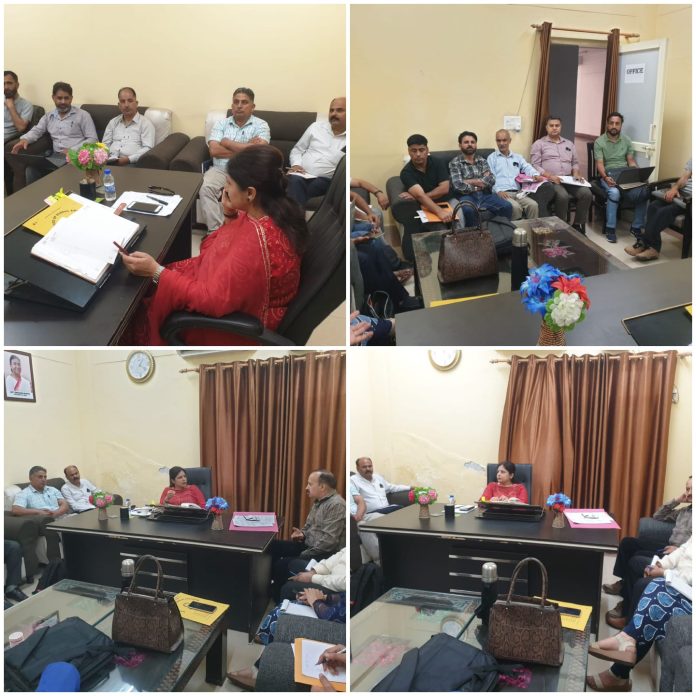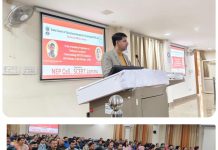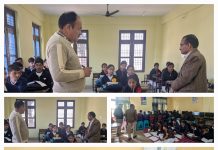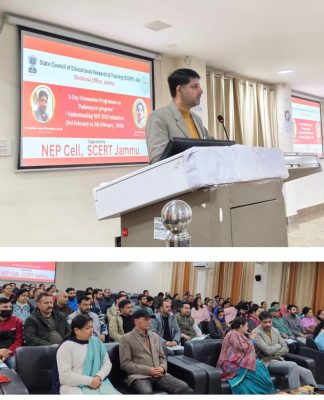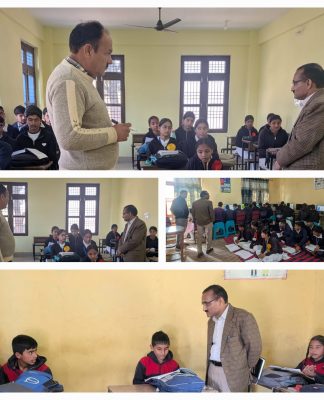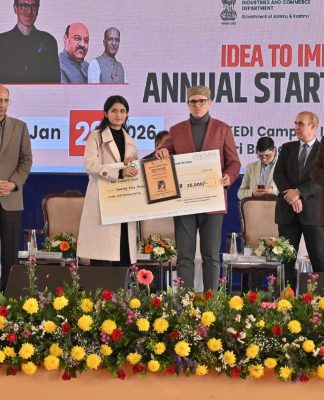Jammu, 30 May 2025 — As the wheels of administrative scrutiny continue to turn steadily at the Directorate of School Education Jammu, today marks a significant step in the division-wide financial and staffing review: it is now the turn of District Kishtwar. In accordance with Directorate circular No: DSEJ/Acctts/2379-89 dated 22/05/2025, a meticulous review of sanctioned staff strength and fiscal performance is underway—a critical step toward shaping the Budget Estimates for 2026–27 and revisiting the Revised Estimates for 2025–26.
The initiative, methodical in structure and solemn in tone, invites Chief Education Officers, Zonal Education Officers, and their respective dealing assistants to the table of accountability. Two days have been set aside for each district of the Jammu Division, allowing space for thorough discussion, verification, and alignment with the educational priorities of the region. Today, Kishtwar engages in this essential exercise of reflection and review, having followed the districts of Jammu and Rajouri in what may be described as a disciplined march toward administrative clarity.
The review delves deeply into the sanctioned strength of employees—mapped both district-wise and zone-wise—as officials scrutinize structural needs and ensure the optimal deployment of human resources. Alongside this, the surrender statements of the previous financial year are being examined with care, identifying excess allocations and ensuring that no public fund wanders unused or unaccounted for. The financial progress of the ongoing year, up to May 2025, is being reviewed head-by-head, allowing the Directorate to calibrate its resources in accordance with actual needs and expenditures.
Attention is also being paid to the flow of local funds and to the intricate network of receipts, expenditures, and balances under Samagra Shiksha, now operating under the Single Nodal Agency (SNA) mechanism. The presence and service records of Education Volunteers (EVs), Rehbar-e-Taleem (RET) teachers, their regularized counterparts (RRET), Third Teachers, and those in Grades II and III are being updated, as the Directorate seeks to refine not just numbers but narratives—the real stories behind those who carry the burden of instruction across far-flung classrooms.
No less important is the review of scholarships—funds received via Non-Plan mechanisms, routed through the Social Welfare Department and Tribal Affairs Department. These financial lifelines, meant to uplift the most vulnerable segments of society, are being tracked for their timely disbursement and effective utilization.
This exercise, covering each of the ten districts over a span of twenty days, is more than a bureaucratic formality. It is a reaffirmation of the Directorate’s enduring commitment to transparency, equity, and data-driven governance. Every ledger inspected, every post accounted for, and every rupee traced is a testament to the philosophy that good governance, like good education, is built not in haste but through the quiet insistence on clarity, accuracy, and care.



